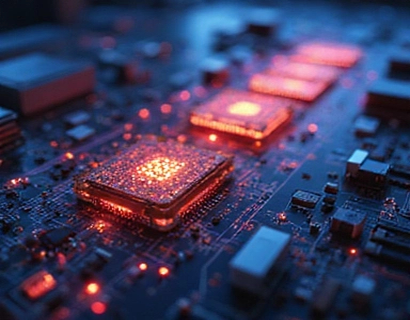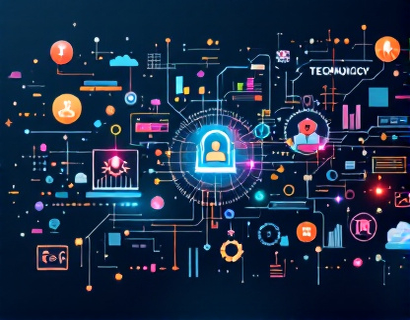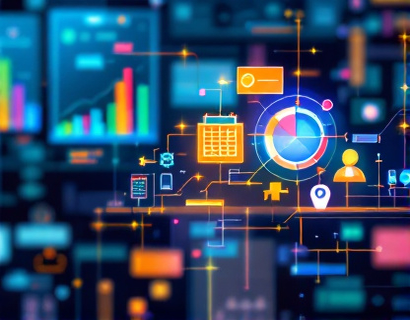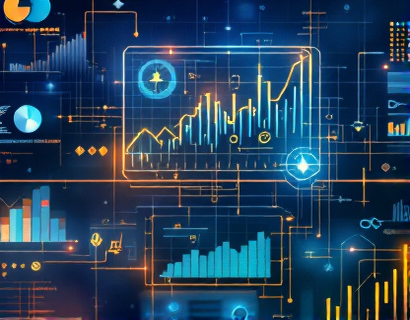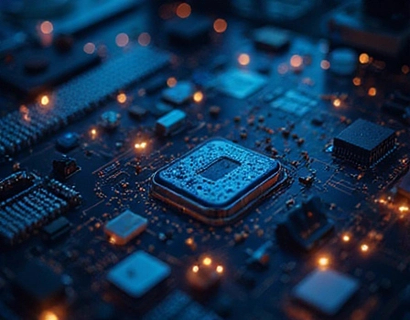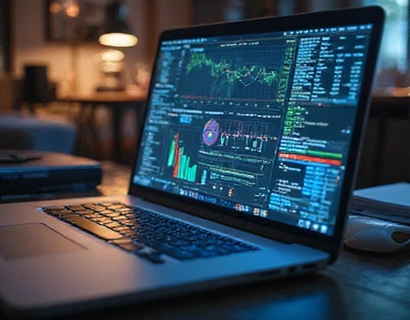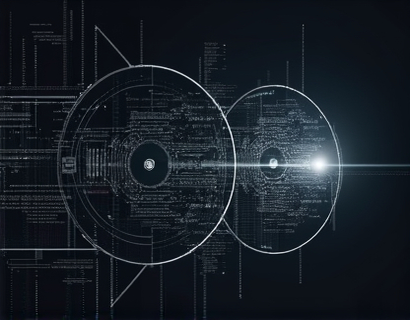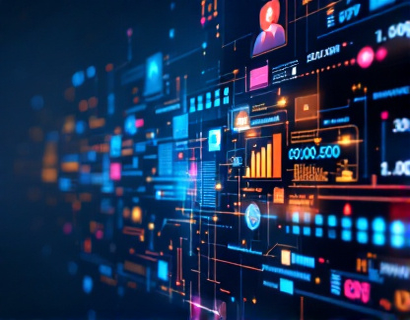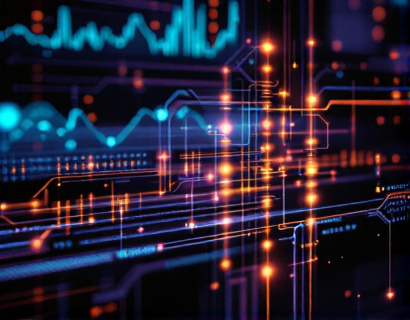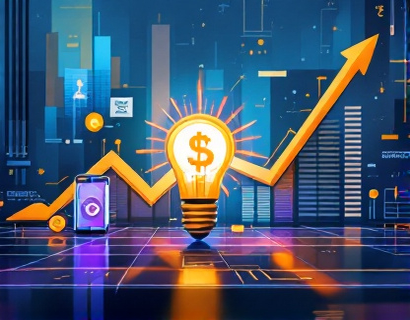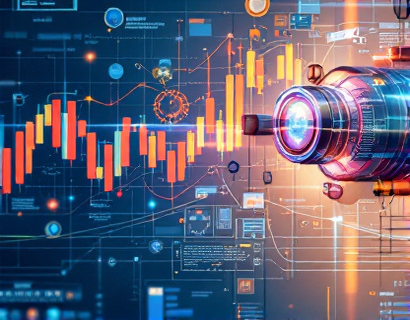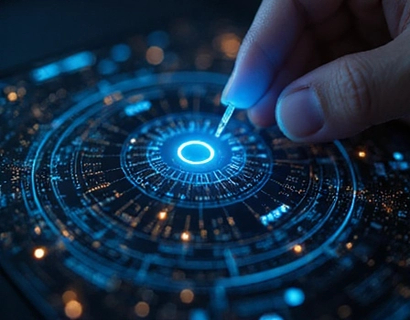Decentralized Transformation: Harnessing AI and Crypto for Next-Gen Digital Solutions
The intersection of cryptocurrency and artificial intelligence (AI) is giving rise to a new era of digital innovation, characterized by decentralized applications and AI-driven services that are redefining user experiences and engagement. This transformation is not just a technological shift but a fundamental change in how we interact with digital platforms and services. For tech enthusiasts, early adopters, and digital innovators, understanding this convergence is crucial for navigating the future of digital solutions.
The emergence of decentralized applications, or dApps, represents a significant departure from traditional centralized models. These applications run on blockchain networks, which are decentralized by nature, ensuring that no single entity has control over the entire system. This decentralization brings numerous benefits, including enhanced security, transparency, and resilience against censorship and failures. The integration of AI into these decentralized frameworks further amplifies their potential, enabling more intelligent, adaptive, and user-centric services.
One of the key advantages of AI in decentralized systems is its ability to process and analyze vast amounts of data in real-time. This capability is particularly valuable in dApps that require dynamic decision-making and personalized user experiences. For instance, AI algorithms can analyze user behavior and preferences to offer tailored recommendations, optimize resource allocation, and enhance security measures. In a decentralized environment, these AI-driven insights can be shared and utilized collectively, fostering a more collaborative and efficient ecosystem.
The synergy between AI and blockchain technology is also driving advancements in smart contracts. Smart contracts are self-executing contracts with the terms of the agreement directly written into code. AI can enhance smart contracts by adding layers of intelligence that allow for more complex and nuanced decision-making. For example, AI can help in predicting market trends, assessing risks, and automating contract executions based on real-time data. This not only increases the reliability and efficiency of smart contracts but also opens up new possibilities for decentralized finance (DeFi), supply chain management, and other industries.
Another area where AI and decentralization are making waves is in the realm of data privacy and ownership. Traditional centralized systems often struggle with data breaches and misuse, as user data is stored in vulnerable central repositories. Decentralized systems, combined with AI, offer a more secure and user-controlled approach to data management. Blockchain-based identity solutions, for instance, allow users to own and manage their digital identities, while AI can enhance these systems by detecting and preventing unauthorized access and fraudulent activities.
The combination of AI and decentralization is also transforming the way content is created and consumed. AI-powered content generation tools can produce high-quality content at scale, from news articles to social media posts. When integrated with decentralized platforms, these tools can ensure that content creation is more democratic and less controlled by a few large corporations. AI can also improve content moderation and curation, ensuring that users receive relevant and high-quality content while maintaining the integrity of the platform.
In the realm of gaming, the fusion of AI and decentralization is giving birth to new paradigms. Decentralized gaming platforms leverage blockchain to create truly ownership-based experiences, where players can own in-game assets as non-fungible tokens (NFTs). AI enhances these experiences by creating more realistic and adaptive game environments, intelligent NPCs, and personalized gameplay. This not only increases user engagement but also opens up new revenue streams for developers through decentralized marketplaces and token-based economies.
The healthcare sector is another area where the integration of AI and decentralization can bring transformative changes. Decentralized health records, powered by blockchain, ensure that patient data is secure, accessible, and controlled by the individuals. AI can analyze this data to provide personalized health insights, predict disease outbreaks, and optimize treatment plans. This not only improves patient outcomes but also reduces healthcare costs and enhances the overall efficiency of the healthcare system.
In the world of supply chain management, AI and decentralization can significantly improve transparency and efficiency. Blockchain-based supply chain solutions provide an immutable and transparent ledger of transactions, making it easier to track products from origin to destination. AI can optimize supply chain operations by predicting demand, reducing waste, and automating processes. This combination ensures that supply chains are more resilient, cost-effective, and environmentally sustainable.
The financial sector is perhaps one of the most impacted areas by the convergence of AI and decentralization. DeFi platforms are redefining traditional financial services by offering decentralized alternatives to lending, borrowing, trading, and insurance. AI enhances these platforms by providing sophisticated risk assessment tools, automated trading algorithms, and personalized financial advice. This not only democratizes access to financial services but also increases the efficiency and security of financial transactions.
However, the journey towards a fully decentralized and AI-enhanced digital landscape is not without challenges. One of the primary concerns is the scalability of blockchain networks. Current blockchain technologies often struggle to handle high transaction volumes, which can limit the widespread adoption of decentralized applications. Research into more efficient consensus mechanisms and layer 2 solutions is ongoing, aiming to address these scalability issues and make decentralized systems more practical for everyday use.
Another challenge is the regulatory environment. As decentralized technologies and AI applications evolve, regulatory bodies are grappling with how to oversee these innovations without stifling growth and innovation. Striking the right balance between regulation and freedom is crucial to ensure that these technologies can thrive while protecting users and maintaining ethical standards.
User education is also a critical factor in the adoption of decentralized and AI-driven solutions. Many potential users are still unfamiliar with blockchain technology and AI, which can hinder their willingness to adopt these innovations. Educational initiatives and user-friendly interfaces are essential to bridge this knowledge gap and make these technologies accessible to a broader audience.
Looking ahead, the future of decentralized transformation powered by AI and crypto is promising. As technology continues to advance, we can expect more seamless integration of these elements, leading to more sophisticated and user-centric digital solutions. The potential applications span across various industries, from entertainment and education to healthcare and governance. The key will be to foster collaboration between technologists, policymakers, and users to create a robust and inclusive ecosystem that harnesses the full potential of decentralized and AI-driven innovations.
In conclusion, the merging of cryptocurrency and AI is not just a technological trend but a fundamental shift in how we build and interact with digital systems. By embracing decentralized applications and AI-driven services, we can create a more secure, transparent, and user-friendly digital world. For those eager to explore this exciting frontier, the future is bright, and the possibilities are endless.



